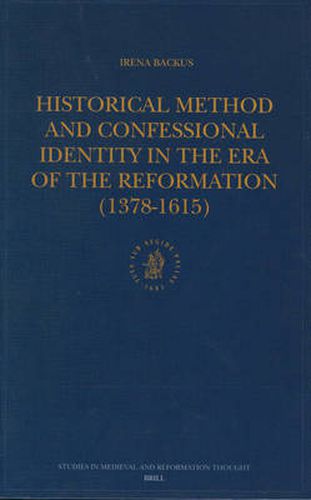Readings Newsletter
Become a Readings Member to make your shopping experience even easier.
Sign in or sign up for free!
You’re not far away from qualifying for FREE standard shipping within Australia
You’ve qualified for FREE standard shipping within Australia
The cart is loading…






This volume deals with the basic problem of how theologians of all confessions handled ancient, mainly Christian, history in the Reformation era. The author argues that far from being a mere tool of religious controversy, history was used throughout the 16th century to express profound religious and theological convictions and that historians and theologians of different confessions sought to define their religious identity by recourse to a particular historical method. By carefully comparing the types of historical documents produced by Calvinist, Lutheran and Roman Catholic circles, she throws a new light on patristic editions and manuals, the Centuries of Magdeburg, the Ecclesiastical Annals of Caesar Baronius and various collections of New Testament Apocrypha. Much of this material is examined here for the first time. The book substantially revises existing preconceptions about Reformation historiography and view of the past.
$9.00 standard shipping within Australia
FREE standard shipping within Australia for orders over $100.00
Express & International shipping calculated at checkout
This volume deals with the basic problem of how theologians of all confessions handled ancient, mainly Christian, history in the Reformation era. The author argues that far from being a mere tool of religious controversy, history was used throughout the 16th century to express profound religious and theological convictions and that historians and theologians of different confessions sought to define their religious identity by recourse to a particular historical method. By carefully comparing the types of historical documents produced by Calvinist, Lutheran and Roman Catholic circles, she throws a new light on patristic editions and manuals, the Centuries of Magdeburg, the Ecclesiastical Annals of Caesar Baronius and various collections of New Testament Apocrypha. Much of this material is examined here for the first time. The book substantially revises existing preconceptions about Reformation historiography and view of the past.